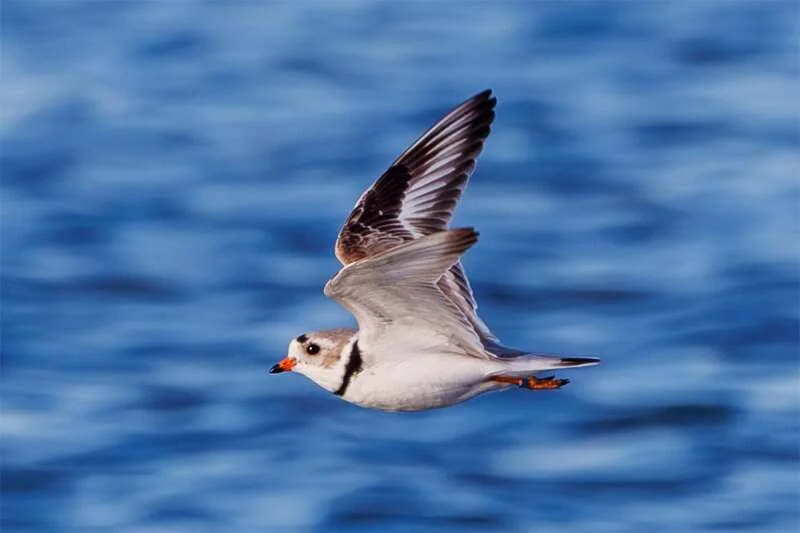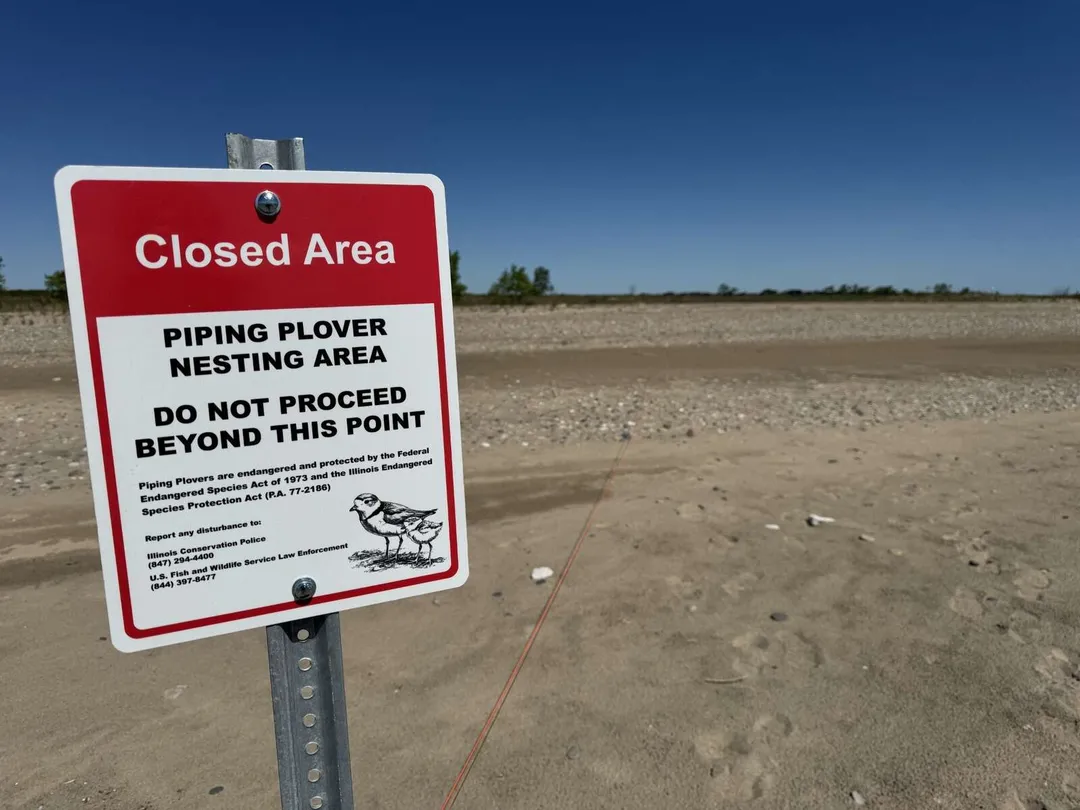
Endangered Piping Plovers Return to Waukegan for a Second Year
A beloved shorebird couple recently reunited at a private beach along Lake Michigan in Waukegan, completing a remarkable journey for a second consecutive year.
In what ecstatic birders describe as an epic migration story, Blaze and Pepper, federally endangered piping plovers, arrived separately on May 6, at nearly the same time on the same beach. This reunion has sparked intrigue among ornithologists and the local community alike.

“Two birds, wintering in locations nearly 1,000 miles apart, arriving within a few feet of where they nested last year. How do they do it?” asked the Lake County Audubon Society in welcoming the pair home. This remarkable ability to navigate vast distances has captivated those who follow the life of these charming birds.
The plucky pair faced rough weather on their separate journeys—Blaze from North Carolina and Pepper from Florida—but remarkably, they arrived two weeks sooner than last year. They have begun foraging along the shoreline, engaging in courtship displays, and assessing potential nesting sites, as reported by Brad Semel, endangered species recovery specialist with the Illinois Department of Natural Resources.
However, the whereabouts of last year’s fledglings—Juniper, Sage, and Willow—remain uncertain. Historically, the little sand-colored plover has faced challenges; it disappeared from Illinois beaches in the mid-1950s when there were estimated at fewer than 15 pairs by the mid-1980s.
“Piping plovers are special because they’re incredibly charismatic—the very fierceness that is needed as they struggle to come back from the edge of extinction,” said Carolyn Lueck, president of the Lake County Audubon Society. With dedicated volunteers and agencies contributing to their slow comeback, public passion for these birds is growing.

The area the Waukegan plovers occupy is under strict surveillance, and violators face heavy fines. Public access is prohibited to safeguard their habitat, which is critical for their survival. Currently, there are 30 confirmed pairs of piping plovers in the Great Lakes, with most nests found at Sleeping Bear Dunes National Lakeshore in northern Michigan.
“Hopefully, this trend continues, and we get up to the record number observed last year of 81 breeding pairs and 124 fledged chicks,” Semel added, projecting a hopeful future for the species. As part of the recovery effort, Illinois successfully became the first site outside Michigan for captive-released chicks, bringing a fresh glimmer of hope for the endangered species.
If you protect the piping plover and their habitat, you are going to protect many species, said Lueck, emphasizing the ecological importance of their existence. Waukegan Mayor Sam Cunningham has declared May 29 as Piping Plover Day, exemplifying the community's commitment to conservation.
Will you join the effort to protect these charming birds and their habitats? What role do you think citizens can play in conserving local wildlife? Please share your thoughts in the comments below!